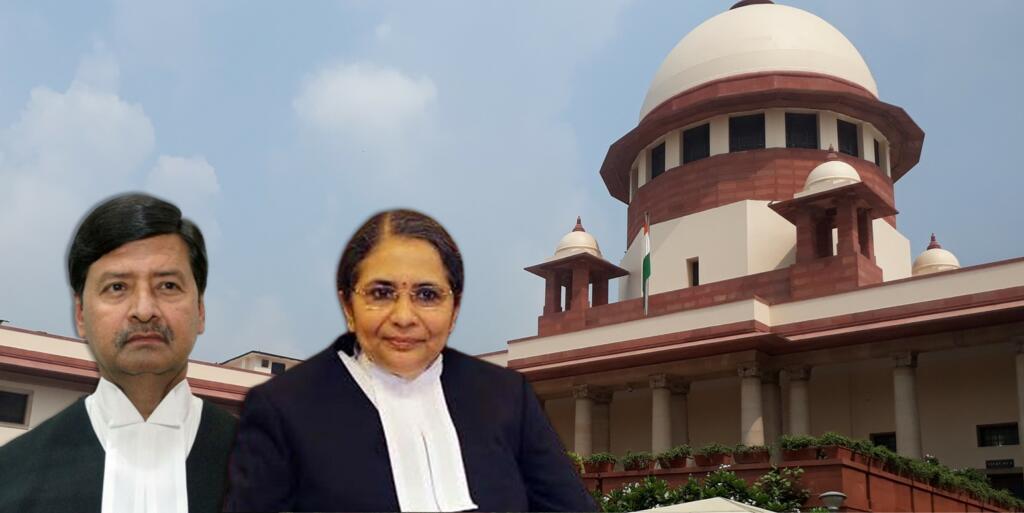In the tumultuous tides of love and hate relationships, reputations may be sullied, hearts shattered and bitter exchanges may entangle one in the court’s grasp. Tragically, seldom, if not rarely the beauty of love often gets distorted into the brutal manifestation of rape. The Apex Court in the recent landmark verdict of ‘Naim Ahamed versus State of NCT of Delhi’ opined that every breach of promise to marry is not ‘rape’.
SC Navigating ‘Love, Lies and Consent’
The Supreme Court in the case of Naim Ahamed emphasized that it would be imprudent to equate every breach of a promise to marry with a false promise and subsequently prosecute the accused for the crime of rape under Section 376 of the Indian Penal Code.
There is a distinction between a false promise made with no intention of fulfilment and a mere breach of a promise. In the Naim Ahamed versus State of NCT of Delhi case of a false promise, the accused never intended to marry the accuser and made a false promise with the sole purpose of satisfying their desires. Whereas, in the case of a breach of promise, it is possible that the accused made the promise in good faith but encountered unforeseen circumstances that prevented them from fulfilling it.
Observation of the Court
The bench of Justices Ajay Rastogi and Bela M Trivedi, while acquitting a man, emphasized on the essence of criminal justice system that the prosecution must prove the guilt of the accused beyond reasonable doubt by presenting evidence. However, in the Naim Ahamed versus State of NCT of Delhi case of rising instances of rape in India, the courts are permitted to raise a legal presumption of absence of consent in certain cases, as outlined in Section 114A of the Indian Evidence Act.
This means that if sexual intercourse is proven and the woman states she did not consent, the court will presume she did not. Consent is not considered valid if it was obtained through fear of injury or under a misconception of fact, as stated in Section 90 of the Indian Penal Code. Further, Section 375 also outlines seven circumstances where rape can occur, even with consent. For example, when the woman is under fear of death or hurt or unable to understand the nature of the act due to unsoundness of mind or substance use.
Thus, considering the ethos and culture of the Indian Society, and considering the rising graph of the commission of the social crime ‘Rape’, the courts are expected to be more vigilant while examining the facts of personal relationships.
Dictum of Supreme Court
The Supreme Court in the instant appeal acquitted the accused who was concurrently convicted under Section 376 IPC for rape. The court observed that the prosecutrix, being a married woman and a mother of three children, was mature and intelligent enough to understand the consequences of her actions.
Her conduct during the relationship with the accused showed that she had betrayed her husband and children for the accused, for whom she had developed feelings. Despite being impregnated by the accused and later finding out that he was already married with children, she continued to live with him without complaint. The Naim Ahamed versus State of NCT of Delhi case highlights how even love relationships can become complicated and morally ambiguous.
The case falls in the long list of cases where the court has questioned the veracity of rape allegations. Previously, the Apex Court has illuminated the dissimilarity between rape and consensual intimacy in cases such as Deepak Gulati v. State of Haryana [(2013) 7 SCC 675] and Dhruvaram Murlidhar Sonar (Dr) v. State of Maharashtra (AIR 2019 SC 327).
Also Read: Black cloth and 11 Promises: How the hangman performs the hanging
Thin Line between Love, Lies and Consent
The judiciary must ponder whether the accused had sincere intentions to wed the defendant or had malafide intention or clandestine motives. If the vow of matrimony was made solely for the purpose of inciting carnal relations, it may be deemed as an act of rape.
The court has also declared that a woman’s consent must be a result of active and well-considered reflection. And for a false promise of matrimony to be proven, two aspects must be demonstrated. Firstly, the false promise must have been made in a manner bereft of good faith. Secondly, it must have a direct relationship with the woman’s decision to partake in the act of intimacy.
Lately, in the case of Shambhu Kharwar v. State of Uttar Pradesh (AIR 2022 SC 3901), the court determined that the pivotal matter in such cases is whether the promise of matrimony was false from its inception or the matter arose after the relationship got soiled. The stance of the Apex Court illustrates that the judiciary holds a pragmatic view with respect to ‘false allegations of rape’ and recognises the fact that the law is being misused by a few in the society at the detriment of many, who are lingering in the jails owing to technical fallacies of proving their case.
Support TFI:
Support us to strengthen the ‘Right’ ideology of cultural nationalism by purchasing the best quality garments from TFI-STORE.COM
